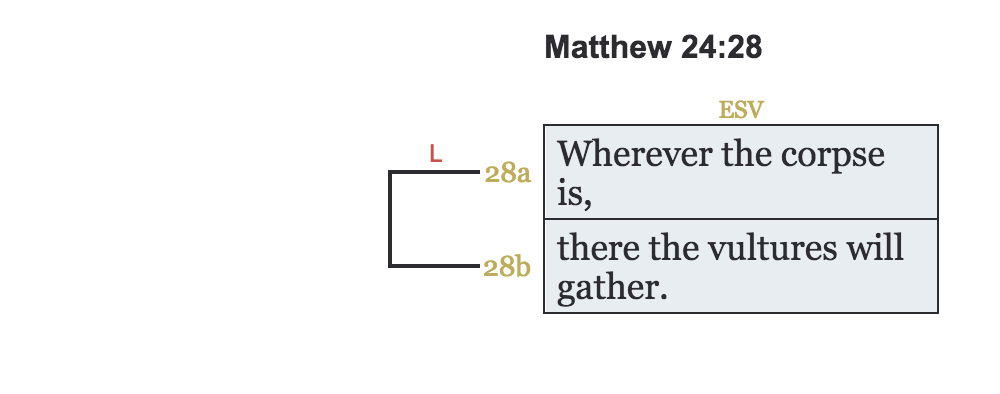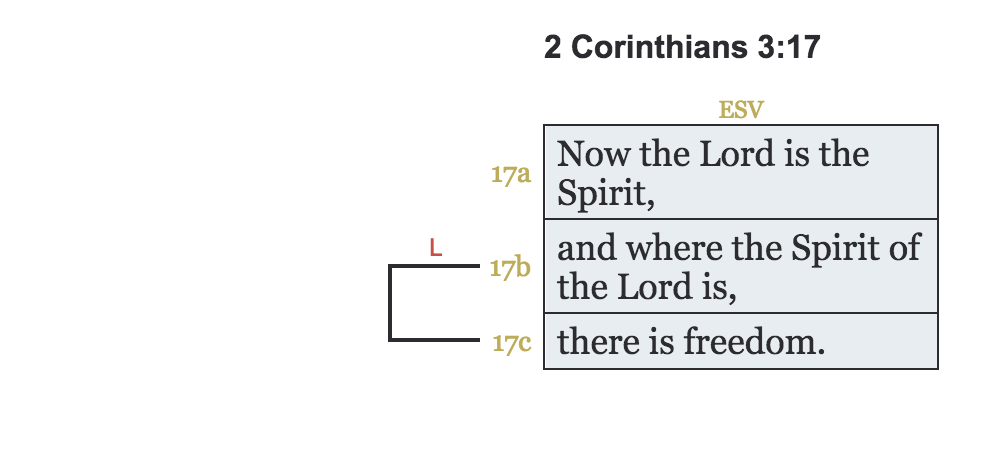Lesson 3 | Support by Distinct Statement
Tying Two Points Together
Five relationships remain in the subcategory Support by Distinct Statement in which two distinct points are tied together.
Action-Result (Ac/Res)
Definition: An action and a consequence or result which accompanies that action.

Everyday example: I ate seven cookies and now I regret it.
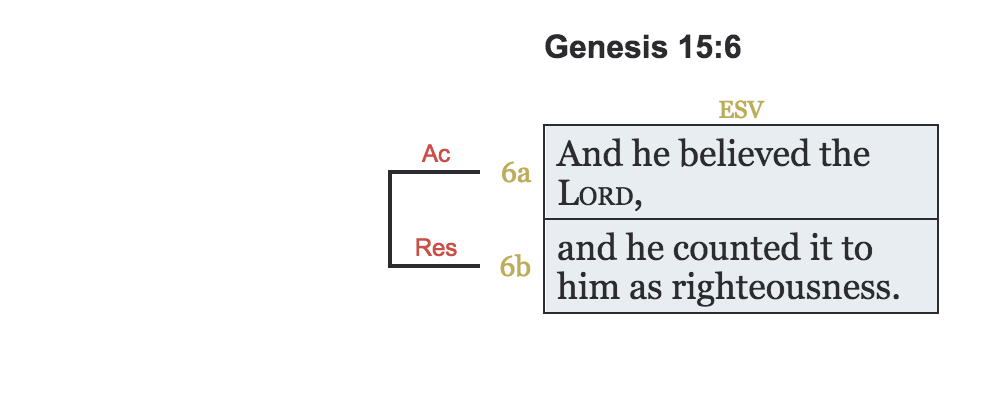
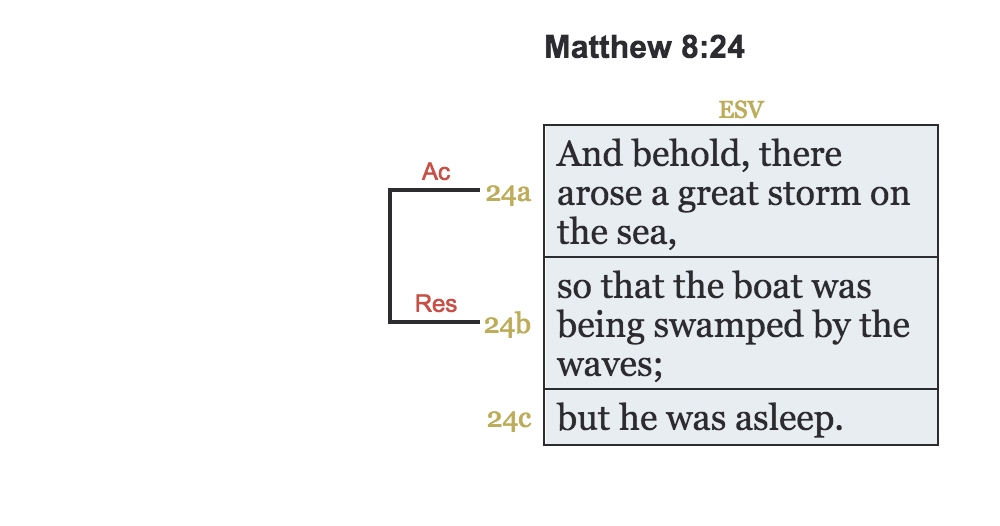
Action-Purpose (Ac/Pur)
Definition: An action and its intended result.
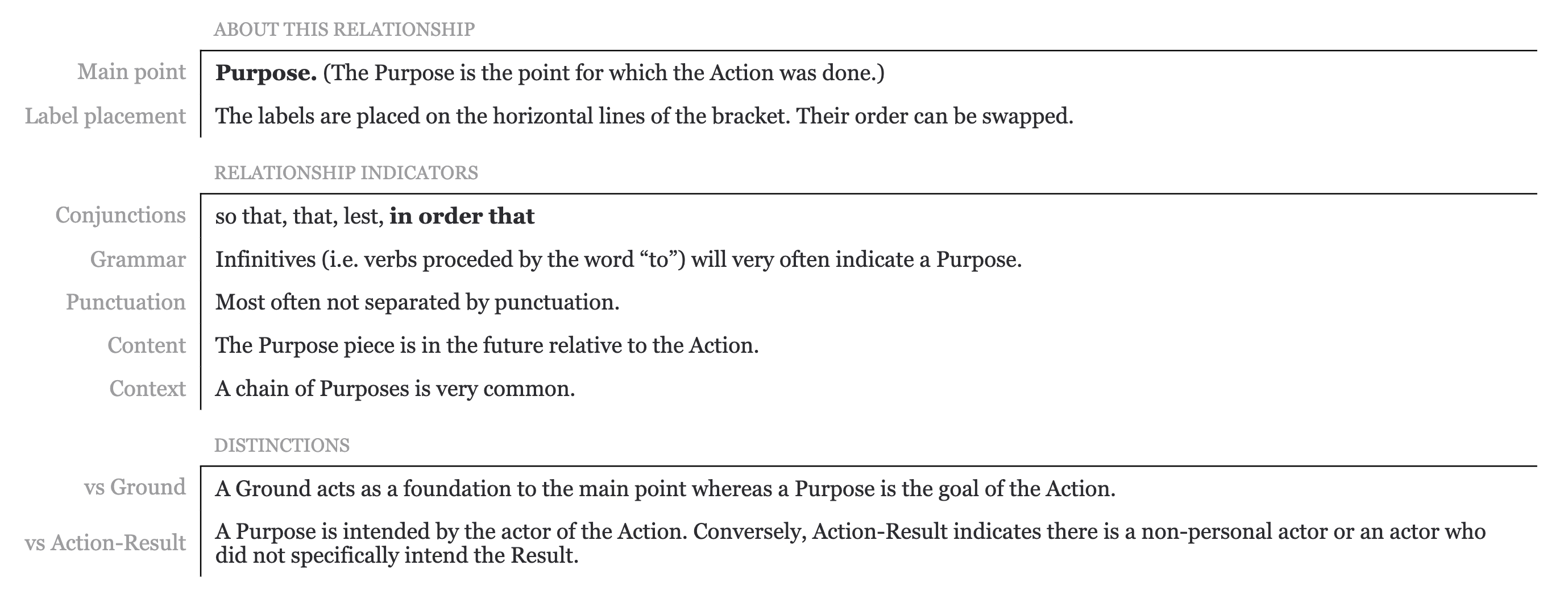
Everyday example: Let’s buy a gift together so we can get him something bigger.
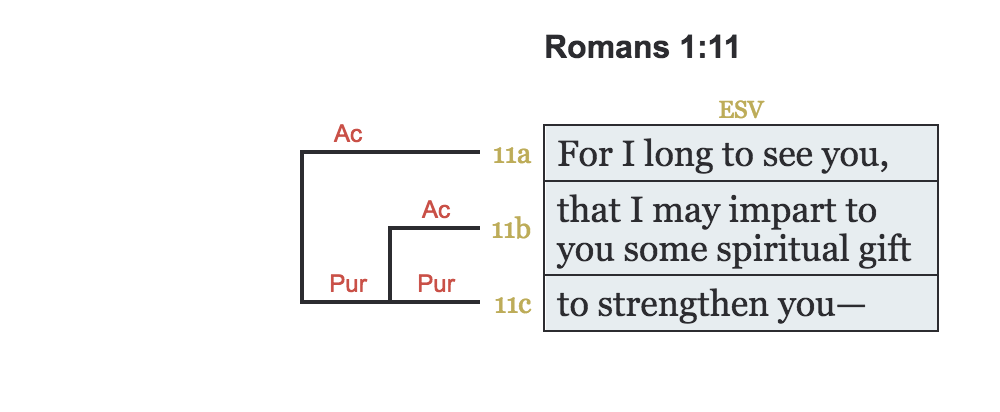
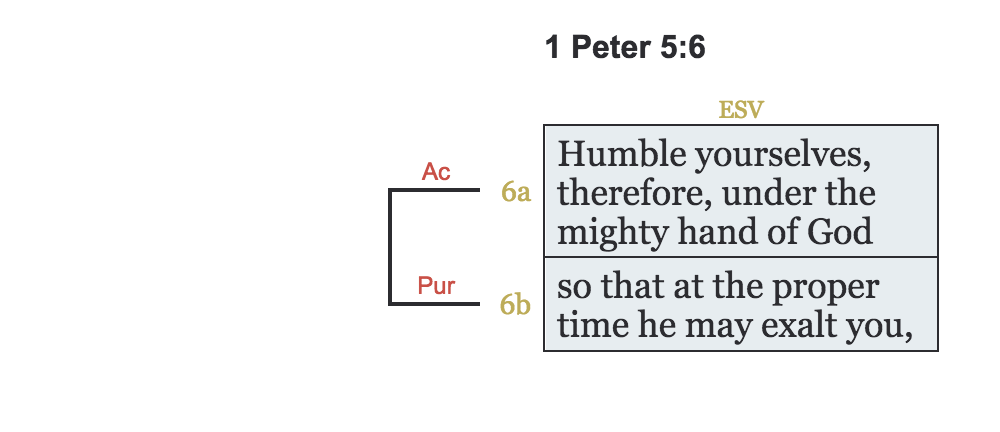
Note
The two relationships above include the word “action” in their name. It is important to note that this term is mainly acting as a filler. The real essence of these relationships is found in the second half of their names—“result” and “purpose.” Therefore, do not assume that a connection must be one of these two (or Action-Manner), simply because one of the pieces is an action. Likewise, sometimes you will want to mark a connection Action-Result or Action-Purpose even though there is no explicit action present.
Action-Purpose
...there must be factions among you in order that those who are genuine among you may be recognized. —1 Corinthians 11:19
Action-Result
...the Nile will stink, and the Egyptians will grow weary of drinking water from the Nile. —Exodus 7:18
Note
Also note that the Action-Purpose relationship will frequently appear in chains as in Romans 1:11 above. In a purpose chain, an action is done in order to accomplish a goal, so as to accomplish another goal, and so on.
Conditional (If/Th)
Definition: Like Action-Result except that the existence of the action is only potential and the result is contingent upon that action.
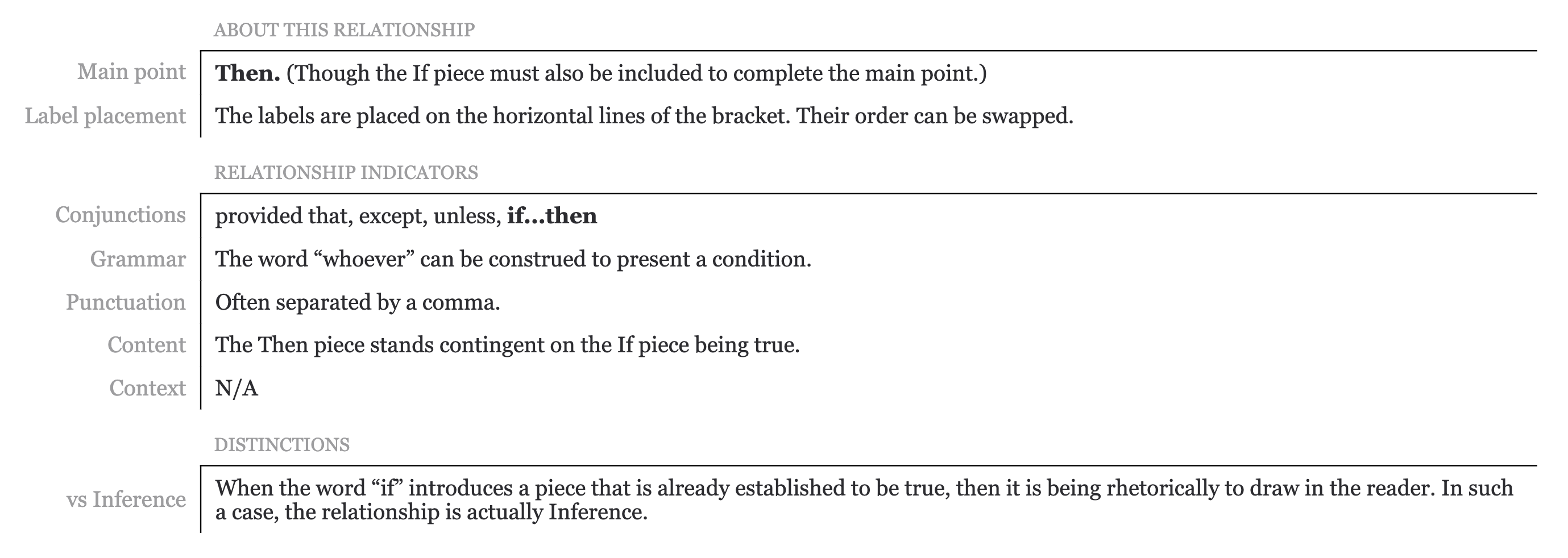
Everyday example: If you want, we can celebrate your birthday at the park.


Temporal (T)
Definition: A statement and the occasion when it is true or can occur.

Everyday example: When I say go, we will lift her up on her chair eight times.
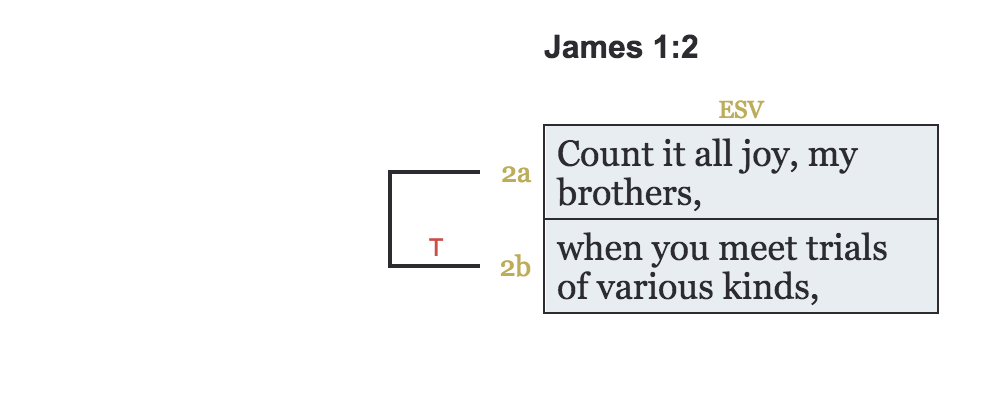
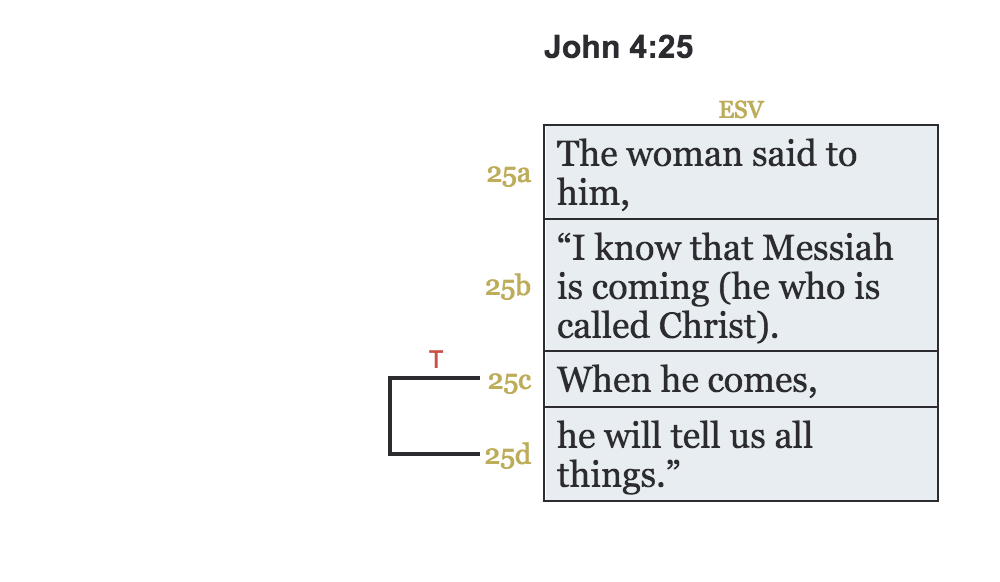
Locative (L)
Definition: A statement and the place where it is true or can occur.

Everyday example: Try to pin the tail on the donkey...where donkeys typically have tails.
